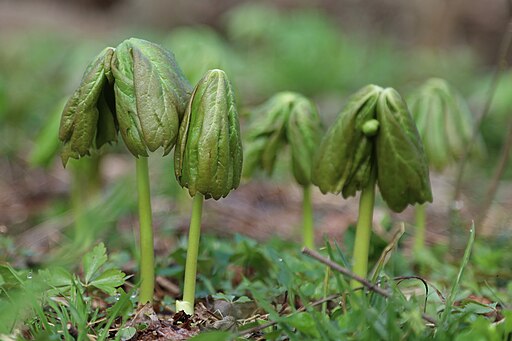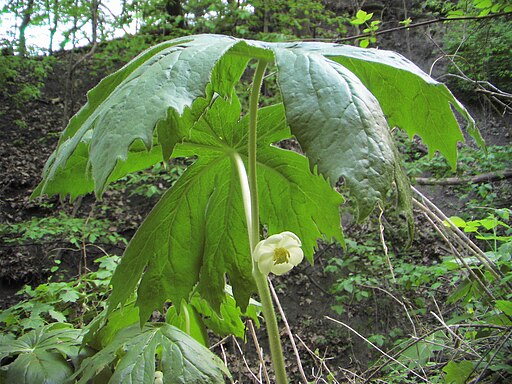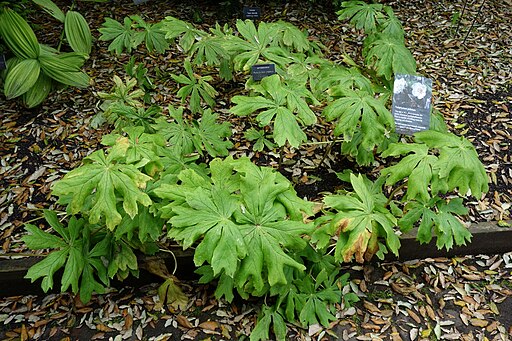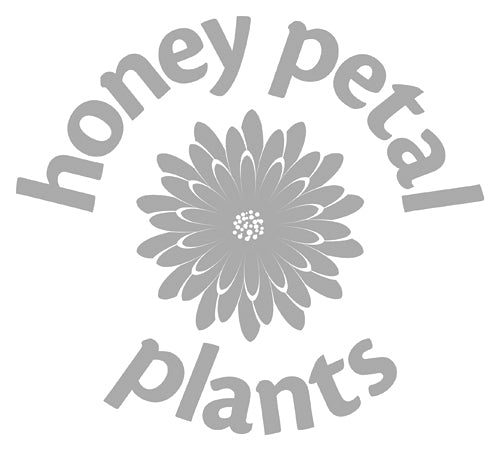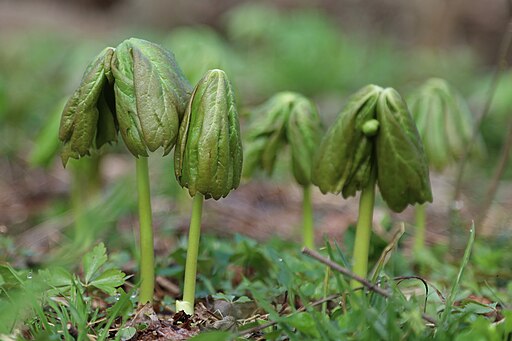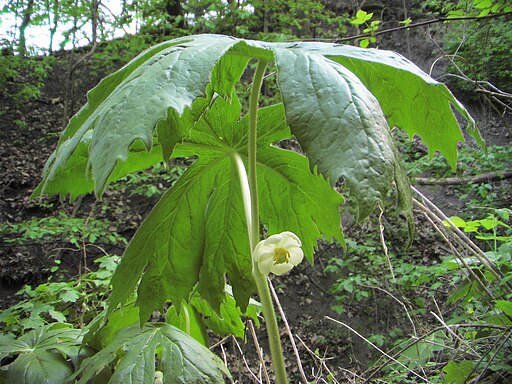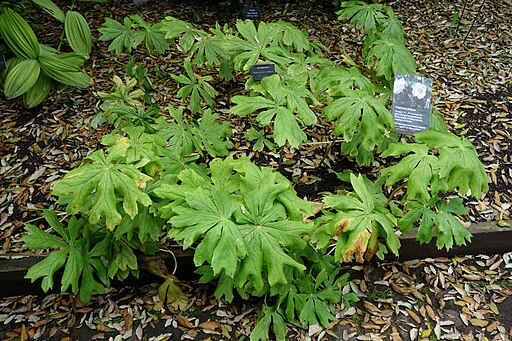Honey Petal Plants
Podophyllum peltatum - Mayapple
Podophyllum peltatum - Mayapple
Couldn't load pickup availability
Sizes available: 2 quart - dormant, looking a bit beat up, but will be absolutely fine
Basics: zones 3-9, 6-16" x 24"+, partial to full shade, white flower (sometimes yellow or pinkish, rosy-red) hidden up under the large leaves in mid-late spring, forming a yellow fruit later in the season, likes consistent moisture, but adaptable in shade and will cope with drought by going summer dormant. All parts of this plant are toxic.
Common names: Mayapple, American Mandrake, Wild Mandrake, Ground Lemon, Indian Apple, Pomme de Mai, Podophylle Pelt, Devil's Apple, Duck's Foot, Hog Apple, Raccoonberry, Umbrella Leaf, Wild lemon
Family: Berberidaceae
Origin/Distribution: southeastern Canada and the eastern U.S. as far south as Texas
Habitat: moist, open, deciduous woodland, shady field edges, riverbanks
More: Your Mayapple will develop into a woodland colony over time. It has been used medicinally, and the ripe fruit can be made into a jelly, it is also poisonous in all parts, so proceed with caution. There is potential for severe contact dermatitis. Two derivatives from chemicals found in Mayapple, etoposide and teniposide, have shown promising results in cancer treatment. Host plant for the Golden Borer Moth. Papaipema carina, which is native to Maine. An excellent ground cover for shady woodland. Deer and rabbit tolerant. Squirrels will eat the ripe fruits.
Nursery: Van Berkum
Image credits: Wikimedia Commons
